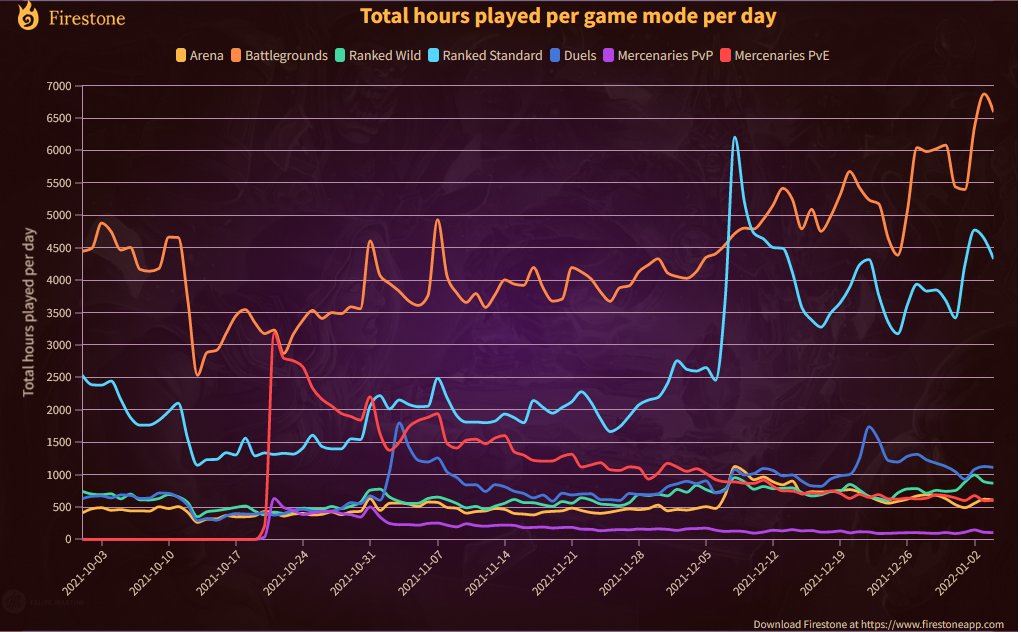The state of Hearthstone in 2022: So many things at once
In 2021, Hearthstone continued growing to encompass what are essentially multiple different games. Where does that leave it?
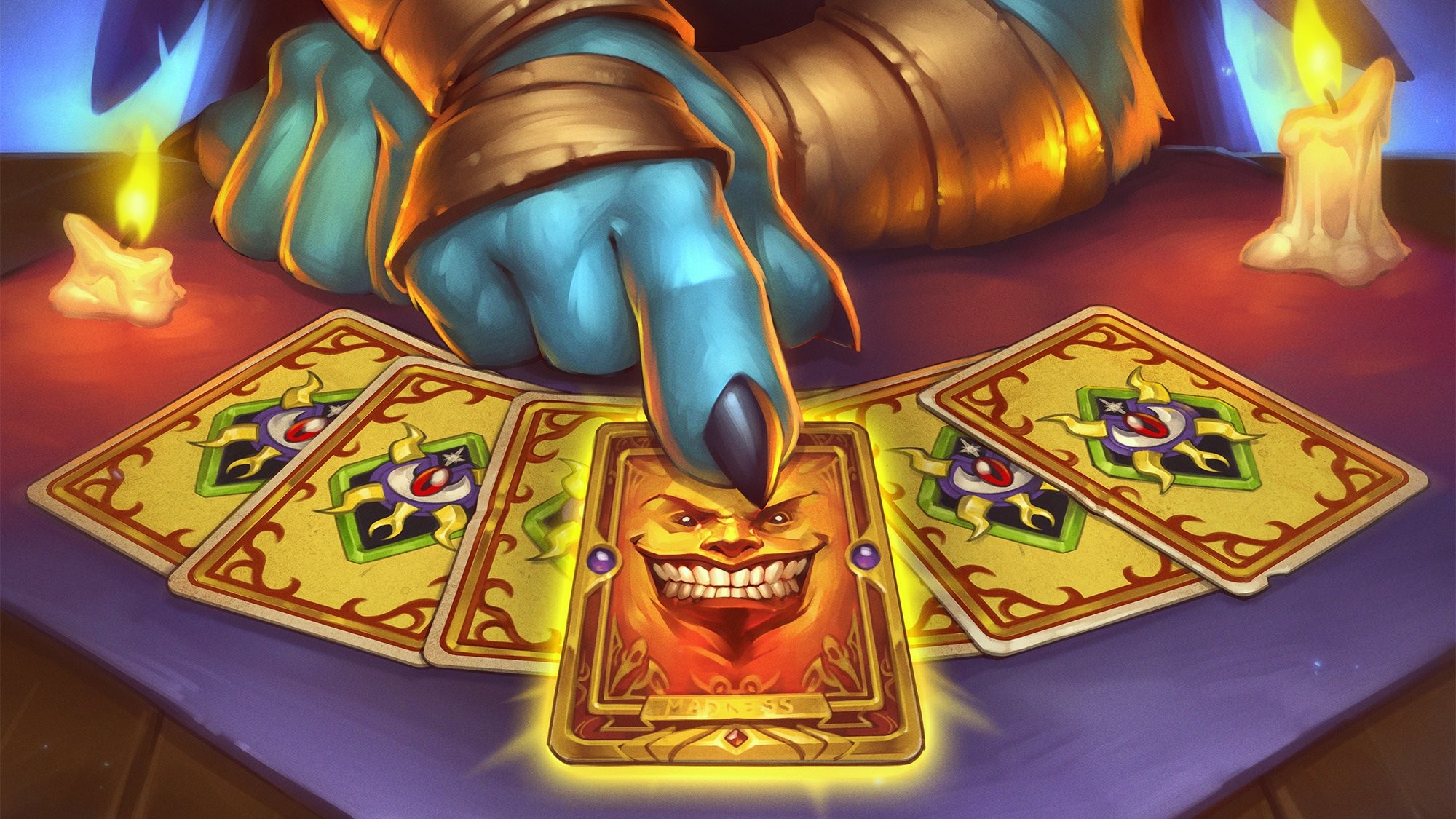
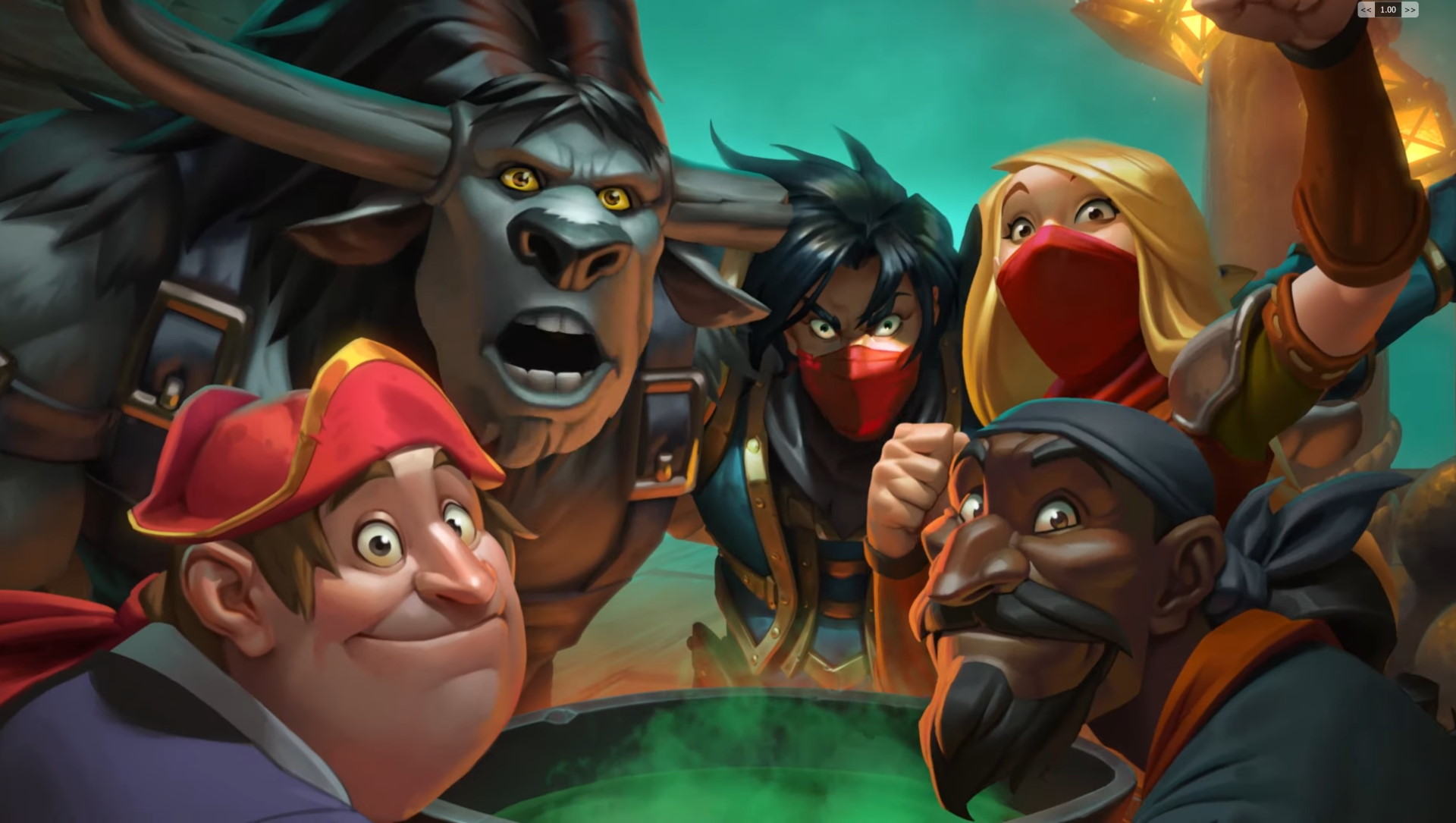
To kick off 2022, we're taking a look at the major games, genres and platforms that make PC gaming to see where they're at as we begin a new year.
"The transformation from game to platform continues, and it looks like players will be spoiled for choice for some time to come—just don't expect the ride to be entirely smooth."
That is how last year's State of Hearthstone wrapped up, and in retrospect, I don't know if it was possible to make a larger understatement. The changes that happened in 2021 were bigger than over the previous year, and considering 2020 included the addition of a whole new class to the game… let's just say there's a lot to cover.
It's almost impossible to speak about Hearthstone as a single entity these days. When it comes to modes, it contains multitudes. It's a collectible card game, an autobattler, a dungeon-crawling roguelike, and—as of this year—a Pokémon/gacha-inspired something. The list goes on! I'm going to resist the urge to compile a complete We Didn't Start The Fire-style list of everything you might have missed last year, but there's only one place to start…
An important note
In June of 2021, the State of California sued Activision-Blizzard alleging the company's work environment was discriminatory and rife with sexual harassment. The specifics were shocking, and there have been many stories corroborating the allegations, including additional details involving CEO Bobby Kotick himself. Many current employees at Blizzard have spoken up in support of their local teams and direct peers as the story has stayed in the public eye for six months and counting since the news broke. By comparison, even the huge Blitzchung incident, which made national TV news, only lasted for a few months in 2019.
The discrimination suit has also been a catalyst for a larger discussion on worker's rights, unionization, and cultural inclusion at studios. From a purely Hearthstone perspective, the initial filing happened during the pre-release hype cycle for the United in Stormwind expansion, while the Bobby Kotick allegations dropped during the equivalent period four months later for the Fractured in Alterac Valley set. I can only imagine how hard it must be to stay focused on building momentum for your team's work during that time.
So, how is Hearthstone right now?
The name Hearthstone still evokes an almost eight-year-old collectible card game, but for a huge chunk of the player base it now primarily means "the program I click to launch Battlegrounds". For a brief moment it looked like the new Mercenaries mode might be a third major way to play the game… but after the initial hype, it's increasingly unclear that there's a substantial audience for it. Certainly not in its current implementation.
Fascinatingly, this year we have some data from the Firestone deck tracker developer which breaks down the games and hours played by mode.
Keep up to date with the most important stories and the best deals, as picked by the PC Gamer team.
Alright, let's start with Standard
Since we spoke in January 2021, the Classic set was removed from Standard in one of the largest upheavals to the format ever. It was replaced by the free Core set, which was loaded with returning cards from older sets, brand new creations, and some staples that were bafflingly kept around—I'm talking to you, Shadowstep—while other cards that seemed impossible to live without like Shield Block, Savage Roar, and my beloved Voidwalker, got cut. (Flame Imp without Void Walker is like peanut butter minus the jelly, only with more ichor.) Overall, the move was well-received. Getting rid of crusty old cards and replacing them with new stuff, while also making the game cheaper? We take those.
This year's expansions had to fill the power vacuum left by the Year of the Dragon, but instead of going for more splashy card generation, the approach was instead to push efficiency. Starting with Forged in the Barrens, cards were more aggressively priced than we've seen in the past, with the set not including a single card over 8 Mana. The Barrens meta was heavy on grindy value, but the groundwork was laid for a future world of hyper-efficient card draw and fast kills from hand. That future arrived with United in Stormwind.
Stormwind brought the return of Quests but with a twist. Now called Questlines, these cards rewarded their players with bonuses at multiple steps on the way to a final game-shattering reward. Prior quest cycles were much patchier in terms of power, with the notable exception of The Caverns Below, which had to be nerfed twice. This time around, the quest cards defined the meta. And that meta was about speed, giant combos, and games ending with players sighing: "Oh, guess I'm dead."
The power of the game felt pushed to the brink and combo decks built around effects like Stealer of Souls broke some of Hearthstone's most fundamental rules regarding Mana, even without including the Warlock Quest.
The contrast from Barrens' plodding environment was jarring and players who preferred slower games suddenly found themselves without a home. Others found themselves loving the plentiful draw and effective win conditions in every class, with the hilarious exception of Priest. (That was me. I'm "other players".) I can't remember a meta quite as polarized as Stormwind and I'm not just talking about the matchup percentages. The discourse around Standard became emotionally charged.
I was really excited coming into this expansion because it felt like there was a ton of cool stuff going on, but the number of games I've played that just end on turn 6 or 7 from an empty board make all of those things feel pretty irrelevant. I'm not looking to play solitaire.August 5, 2021
There was a seemingly endless debate around what qualified as a 'control' deck' and if slower strategies would ever be good again—ignoring that mere weeks prior Control Priest was a dominant deck in Barrens. And that deck generated as many complaints as it did copies of Soul Mirror.
Control clearly means different things to different players, but to summarize the complaints about Stormwind: games were too fast for some and reactive tools were not reliable enough to prevent dying to combo. Consequently, each balance patch was aimed to slow things down and many of these were successful, especially when combined with the defensive and anti-spell tools that came with Fractured in Alterac Valley. That release, plus some post-launch nerfs, looked like it was going to deliver the promised land of slower games with less obnoxious combo kills and many praised the meta for its deck diversity.
Then people found out about Rogue. Whoops.
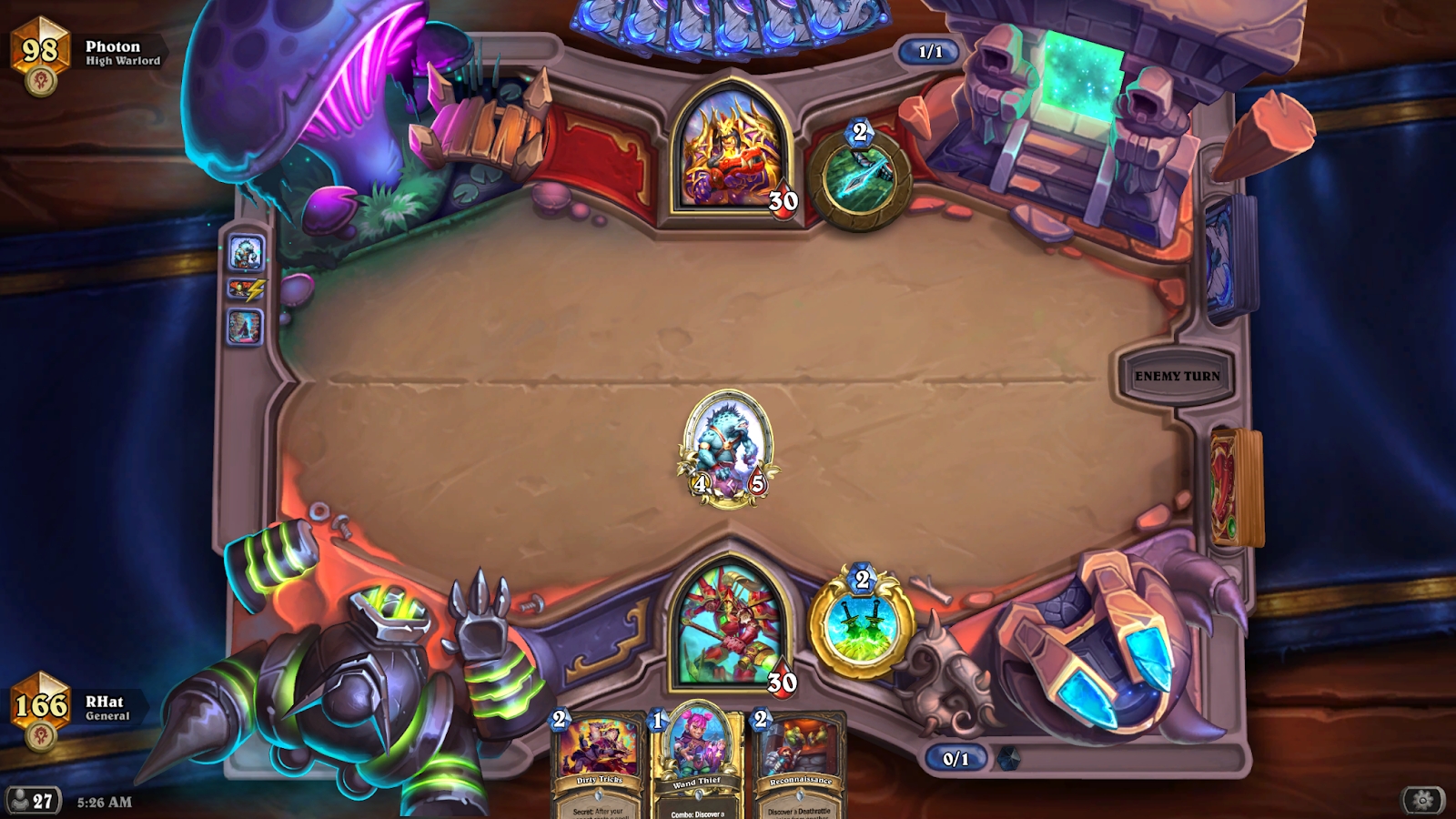
The current meta is warped badly around the Rogue class and high legend is hard to enjoy at the moment with the sheer density of 0-Mana Wildpaw Gnolls, sequential Cloak of Shadows turns, and enormous damage from hand. Still, Alterac was super fun before the meta narrowed, so hopefully solutions won't be hard for the design team to find and implement in the confirmed January 25th patch.
Battlegrounds is Hearthstone's biggest attraction
There is a very real possibility that this is Hearthstone's main mode for the foreseeable future. Battlegrounds is incredibly popular, dominates Twitch viewership, and is still nowhere near the money maker that Standard is—despite the increasing prevalence of paid cosmetics. The shop is brimming with hero skins to the point of excess, although I will allow Pet Salon Bigglesworth.
Still not remotely close. Cosmetics, while we would consider them successful to expectations, do not monetize like gameplay focused products. I imagine this is true for any game.December 2, 2021
2021 saw Battlegrounds evolve, receiving a massive overhaul intended as a functional equivalent to the Standard rotation. In August of last year, 70 minions changed and several entirely new mechanics were introduced. New systems have been implemented too, including a 15-damage cap until someone in the lobby dies, a brilliant variable armor system that allows for heroes to be dynamically adjusted based on their current performance, and… Diablo. Wait, what?
Yes, believe it or not, Diablo joined up with Battlegrounds. At first, the big red boi was little more than a meme. High-MMR streamers commented that his initial implementation was so underpowered that it was like picking from three heroes rather than four. After a buff… he was OK! And then they buffed him again and all hell broke loose. He was so powerful and so prominent in games that Diablo ended up being removed a mere month after his introduction. He hadn't made a lot of friends.
The Battlegrounds team has tested ideas and pushed the boundaries of power much like the constructed team, though admittedly it doesn't seem like the resources were present to react quickly to the outliers that popped up this year. Multiple designers have been hired, so this might still be a work in progress, and resources are finally being allocated to Battlegrounds esports. Official competitions will be held in 2022 under the Battlegrounds: Lobby Legends banner, with invitations determined purely by ladder ranking. Even if it isn't a banker for Blizzard, Battlegrounds' future looks very bright. Which is more than can be said for the newest mode on the block.
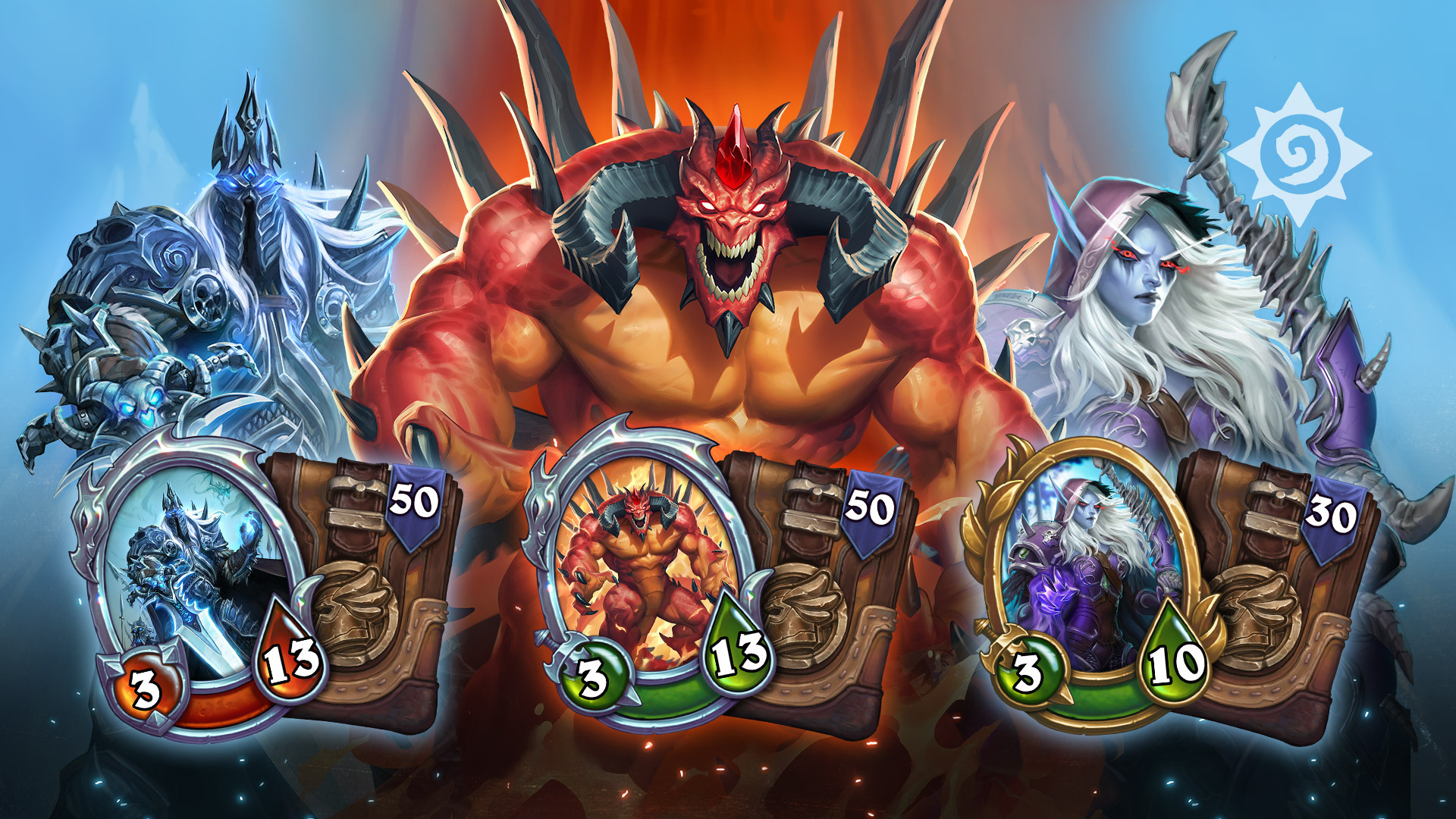
Has Mercenaries vanished?
Back in September I called it a masterclass in how not to announce a mode, but followed up with some more positive impressions after launch, even going so far as to compare it to mac 'n' cheese (after a heated culinary debate with the editor). Mercs seemed like it might be a fun distraction for many and a dizzyingly deep competitive pursuit for some.
What I didn't see coming was the game's very structure fighting back against its players. Fully unlocking and leveling characters felt like it was intended to be a slow process gated behind randomly rolled daily tasks–but hunting for these tasks on PvE maps proved a mind-numbing endgame. The choice was clear: spend hours grinding the same Air Elemental maps to level your party or struggle to keep up.
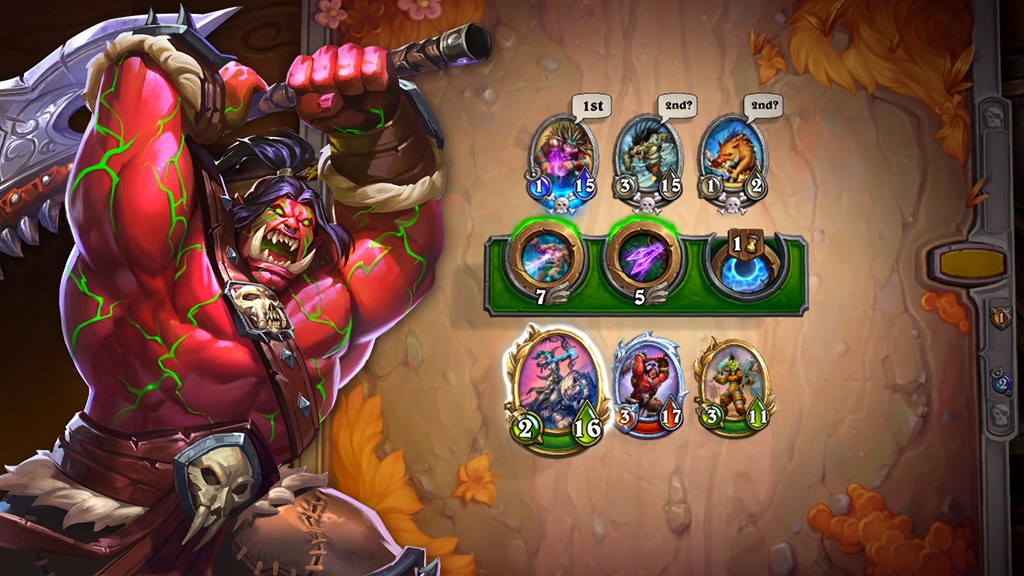
The competitive meta that emerged for those players who could be bothered was quite complex and many early tournaments showcased the skill inherent in the mode. But there's never been a bigger disconnect between seeing a cool comp and getting to play it yourself in terms of time (or money) commitment. Not to mention that you have to start all over with new Mercs whenever they're released. There was some initial acknowledgement of the problem by Blizzard, but since then official communication has been limited and interest for the mode looks to have evaporated.
It's worth noting that in the unofficial Mercenaries discord, lead developer Paul Nguyen routinely engages with players and shares insights on what's to come. Clearly, substantial iteration will take time, but it's also easy to imagine how quickly this kind of project might be written off if it were an indie game without the Blizzard tag. Personally, the most frustrating thing is how enjoyable PvP is but how hard it is to get to the point of being competitive. It almost feels like the core gameplay and levelling structure were developed by different teams. It's also hard to ignore that Battlegrounds has carried the 'beta' moniker for almost two years despite its robust gameplay, while Mercenaries was considered fully baked right away. Was it based on the team's confidence? Or was it due to the need for Mercs to sell pre-orders and packs immediately?
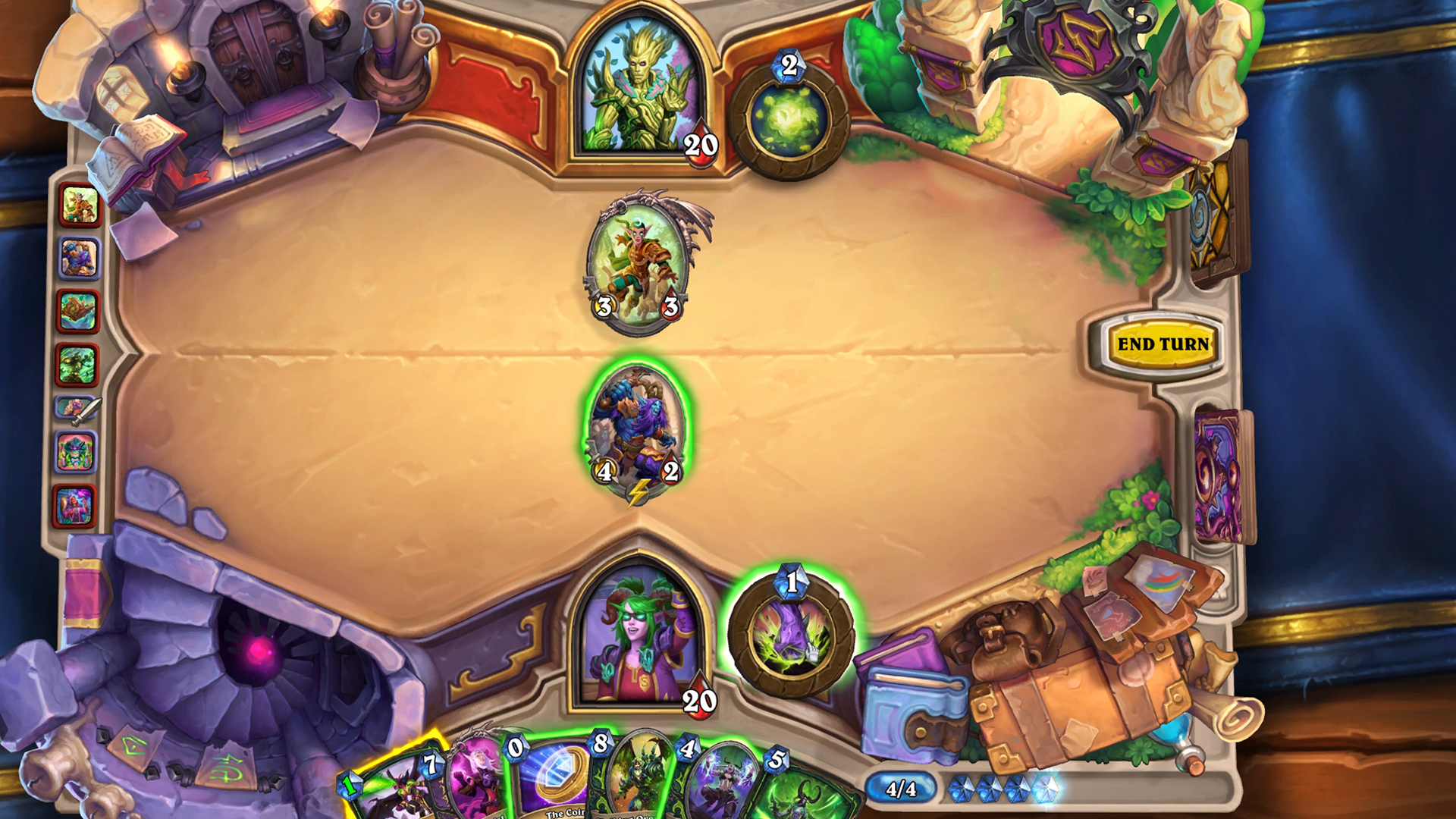
Is there anything else to cover?
Yes. But to be frank, I'm way past the word count. These are the headlines, though:
- Hearthstone Esports is transforming. Last year, I wrote that respected producer Abar had left due to Hearthstone outsourcing the production of its competitions. But he's back as the new manager of the entire program and has already put changes in motion, including the complete elimination of Hearthstone Grandmasters for a more open path to the World Championship. Esports under his watch is much more transparent than it has been in prior years, and hopefully 2022 will transform a program in desperate need of energy since the disastrous switch to YouTube from Twitch.
- Duels: Slowly building steam. There's not much concrete news to share, but Duels as a mode has garnered grassroots support for a bunch of reasons: the paywalls around hero powers and signature treasures were removed, streamers like RegisKillbin started playing, and the gameplay is really fun! The FireStone data shows this as the third most popular mode in the game. I was surprised too.
- Wild: Past the point of no return? If you thought this year had strong cards in Standard, you wouldn't believe what happened in Wild. Stealer of Souls brought the first ever ban to the format and then Stormwind broke things in half with the Questlines. The Demon Seed was the recipient of the next ban, but the format is perennially busted. As an example, Reno Jackson is now considered too slow to be viable. Yeah. And that's not even considering the concerns of high-level players about the rise of "animation cheaters" playing Ignite Mage. It's unclear how widespread the problem is, but I know that multiple players have hit rank 1 legend with the exploit. It's crazy to see in action.
This is what animation cheating in Hearthstone looks like. pic.twitter.com/6ANapGXyYcDecember 17, 2021
- Arena: An unknown future. Normally, I wouldn't even mention Arena, which is a commentary on the mode in and of itself. Alas, it was recently revealed that all the balance micro-adjustments in arena were handled by a single data scientist, Tian Ding, who has since left the company. It's fair to say that does not bode well for the short of midterm future of the unloved draft mode.
- Community team levels up. Multiple notable members from the Hearthstone scene have been hired to the community team, including Alkali Layke and DeckTech, as well as promoting tenured Blizzard folks like Celso O'Donnell. Last year we noted how the devs were ramping up communication, and that trend has continued. Alkali specifically has made major strides in community education on content creation and inclusivity outside of major established streamers who already had the visibility. It's been a breath of fresh air!
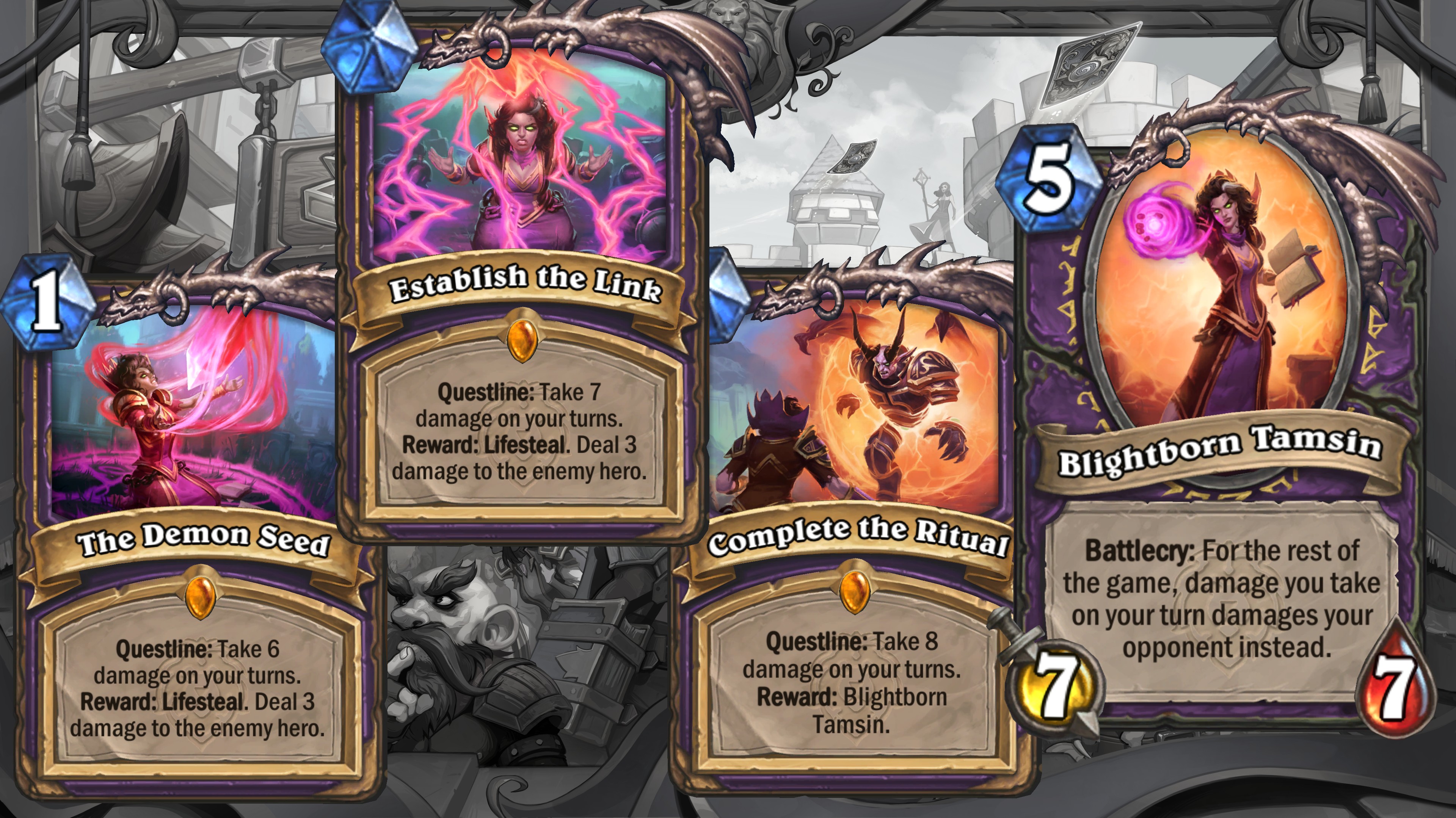
So what's next?
This is the hard part. We've been through two years of Hearthstone transforming at a breakneck pace. Is it even possible to predict anymore? In a way, we already know. The team has made multiple comments saying that 2022 is focused on sustainability. Of course there will still be cool stuff, but instead of multiple new game modes in a 12-month period, we're more likely to get upgrades to what we have. Frankly, it's about time the client gets some love.
As for the new sets, I suspect this year will see a return to three disconnected themes rather than an overarching story. We're due for some goofy Hearthstone whimsy, and it's been a while since we've had a spooky set too! My guess is that it's time to finally make Undead a tribal type and give us a set based on the Forsaken. Sylvanas is certainly overdue for a return to constructed.
Doing some BG work now for new cosmetics and light progression. Also in early prototype stages for different modes of BG but haven't landed on anything. We'd like to make tournaments for BG in-client in a way that could translate to other modes as well.October 16, 2021
New features are what I'm most excited about, since the team has alluded to all sorts of options that they're thinking about adding to the game. In-client tournament mode sounds like it's back on the menu finally, and even though I'm skeptical that it will make it into the game any time soon, I can dream about being able to pick and ban without using a crappy third-party website. Will they revamp the collection screen? Can we choose which quests we want based on the modes we play? Is it finally time for auto-squelch?!
We'll see what comes next, but hopefully we'll be able to look back on 2022 and say that instead of doing more, Hearthstone did better.
